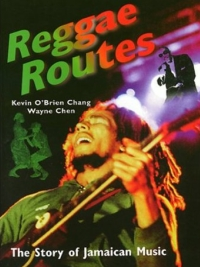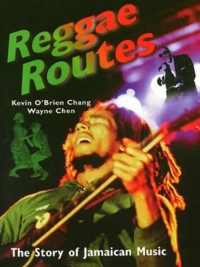Reggae Routes
The Story of Jamaican Music
Essay by Kevin O'Brien Chang, Wayne Chen
Editions
 |
1998 | Temple University Press | 978-1566396295 | English |
 |
1998 | Ian Randle Publishers | 978-9768100672 | English |
Summary
Bob Marley's recordings, some twenty years after his death, still enjoy enormous international popularity. For popular music fans in most of the world, reggae looms so large as to be Jamaica's only music and Marley its consummate musician. In this book, Jamaicans Kevin Chang and Wayne Chen, offer a history of reggae, accounting for its rise and devolution.
Jamaican music can be roughly divided into four eras, each with a distinctive beat-ska, rocksteady, reggae, and dancehall. Ska dates from about 1960 to mid-1966 and rocksteady from 1966 to 1968, while from 1969 to 1983 reggae was the popular beat. The reggae era had two phases, "early reggae" up to 1f and "roots reggae" up to 1983. Since 1983 dancehall has been the prevalent sound.
The authors describe each stage in the development of the music, identifying the most popular songs and artists, highlighting the significant social, political, and economic issues as they affected the musical scene. While they write from a Jamaican perspective, the intended audience is "any person, local or foreign, interested in an intelligent discussion of reggae music and Jamaica."
Featuring some four hundred illustrations that range from album covers and posters to rare photos, Reggae Routes profiles the innumerable artists, producers, and recordings that secured an international audience for Jamaican music.
Artists discussed: Toots and the Maytals, the Wailers, Gaylads, Desmond Dekker, Delroy Wilson, Alton Ellis, Burning Spear, Itals, Wailing Souls, Skatalites, Heptones, and hundreds more.Options
Latest books
© 2007-2026 United Reggae. All Rights Reserved. Reproduction in whole or in part is prohibited. Read about copyright
Terms of use | About us | Contact us | Authors | Newsletter | A-Z






